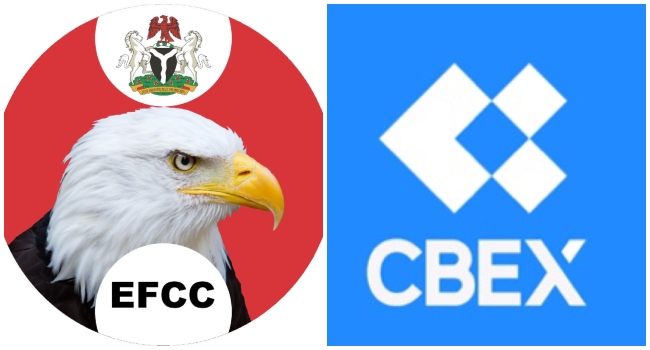Amid mounting public outcry over the alleged N1.3 trillion fraud linked to digital investment platform CryptoBank Exchange (CBEX), the Economic and Financial Crimes Commission (EFCC) has reiterated its prior warnings to Nigerians about the dangers of Ponzi schemes.
The EFCC’s spokesperson, Mr. Dele Oyewale, speaking during an interview on Channels Television’s The Morning Brief on Wednesday, said the commission had proactively issued public advisories on suspicious investment platforms prior to CBEX’s collapse.
CBEX reportedly went offline on Monday, leaving countless Nigerian investors unable to access their funds. Videos circulating online show affected individuals lamenting the sudden disappearance of their investments.
Oyewale emphasized that the EFCC had previously identified CBEX and similar platforms as potential threats. “On March 11 this year, the EFCC Chairman, Mr. Ola Olukoyede, instructed us to issue an alert on 58 identified Ponzi scheme operators,” he said. “We published a list, showing our commitment and proactive efforts to protect Nigerians from fraudulent investment schemes.”
He confirmed that the commission had already begun investigating CBEX, stating, “We were already working on the matter before the complaints began coming in, and we’re still working on it. Our efforts have been ongoing.”
Addressing the nature of CBEX’s operations, Oyewale clarified, “CBEX is a Chinese digital trading company with no legal or jurisdictional ties to Nigeria. The so-called offices in places like Ibadan are not functional physical locations—it’s a purely online setup.”
He stressed that the EFCC had consistently warned Nigerians to steer clear of unverified digital investment opportunities. “We’ve done our part through education, public awareness, and intelligence sharing. At some point, individuals must also take responsibility by remaining vigilant and protecting their investments based on the information available to them.”
Oyewale also highlighted the relevance of the new Investment and Securities Act, 2025, which aims to curtail illegal investment operations. According to the Act, engaging in digital trading without proper licensing or adherence to regulatory frameworks is a criminal offence.
He further warned against unrealistic promises from fraudulent platforms. “If someone promises you a 100% return on investment in 30 days, that should raise red flags. It’s not feasible—especially when Nigeria’s official interest rate stands at 27.5%. No legitimate venture can offer such returns.”
Oyewale urged Nigerians to evaluate investment opportunities through the lens of existing legislation, including the Money Laundering Prevention and Prohibition Act (2022), the Proceeds of Crime Act, and the Terrorism Financing Act.
“If an entity is operating in clear violation of these laws, it’s only a matter of time before trouble arises,” he concluded.
